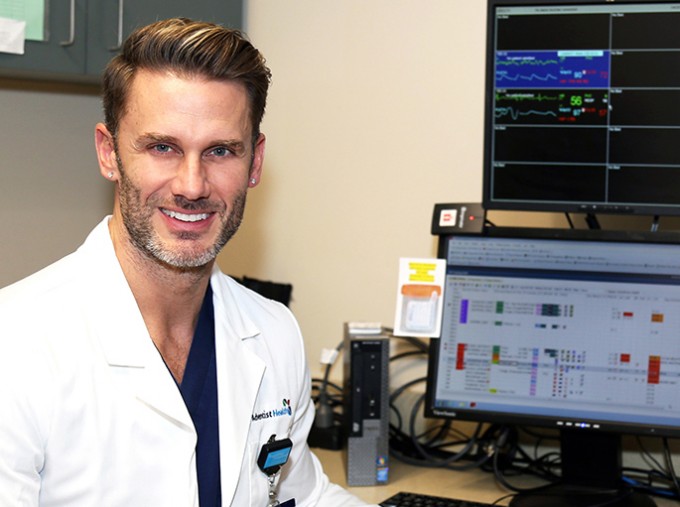My Specialty
Emergency Nursing, Donovan Stewart, Adventist Glendale Adventist
Saving lives while boosting patient satisfaction

Donovan Stewart, RN, BSN, MSN
Emergency Department Director
Adventist Health Glendale
Tell us about your nursing career journey.
I’m originally from Canada and have been a nurse since 2003. I worked briefly in a Canadian ED and then came to Glendale Adventist while I was still in my first year. I was actually one of the first two Canadians that the hospital had ever recruited.
Following my first stint with Glendale Adventist, I served as a manager and educator at Cedars-Sinai while completing my MSN in nursing administration at Cal State. After completing my MSN, I did a year at Providence Holy Cross as the trauma program manager. I loved that position and all that it offered, but Glendale aggressively recruited me to return in February 2017 for the ED director role. I’m thrilled to be here once again.
What are the parameters and highlights of your current role?
We’re a 39-bed ED, comprehensive stroke center, STEMI center and EDAP (emergency department approved for pediatrics). We see an average of 180–200 patients per day and can expand to 53 beds as needed. We’re not currently a trauma center, but we’re considering applying to become a Level II center in the future.
I oversee a staff of 130, including two managers and 10 charge nurses. I’m in charge of operations, budget and hiring as well as collaborating with the managers on various initiatives and projects.
Under the auspices of the Throughput Committee, I also work closely with the inpatient team to ensure that patients move seamlessly through the hospital system. Meanwhile, we’re a base station, which means that we have 27 certified mobile intensive care nurses (MICNs) who field calls from paramedics responding to emergencies in the community. We use protocols overseen by a physician to guide the paramedics in both patient care and the routing of patients to appropriate facilities.
How did you become interested in nursing leadership?
I can safely say that I grew into being a leader. In my early nursing career, I was just excited to be an ED nurse and worked hard to become as efficient, competent and confident as I could. When I worked at Glendale the first time around, they promoted me to a night charge position. That was the stepping stone to subsequent leadership opportunities.
There’s definitely a learning curve in becoming a nurse leader. One of the things that I feel has contributed to my success as a leader is being humble, not feeling overconfident and being consistently unafraid to ask questions.
One of my greatest attributes is being a very calm person even when the place feels like a disaster zone. For me, the more chaotic it gets, the calmer I become. People often say they don’t understand how I can maintain my equanimity even in the worst situations, but it helps me help others to be calm and confident.


